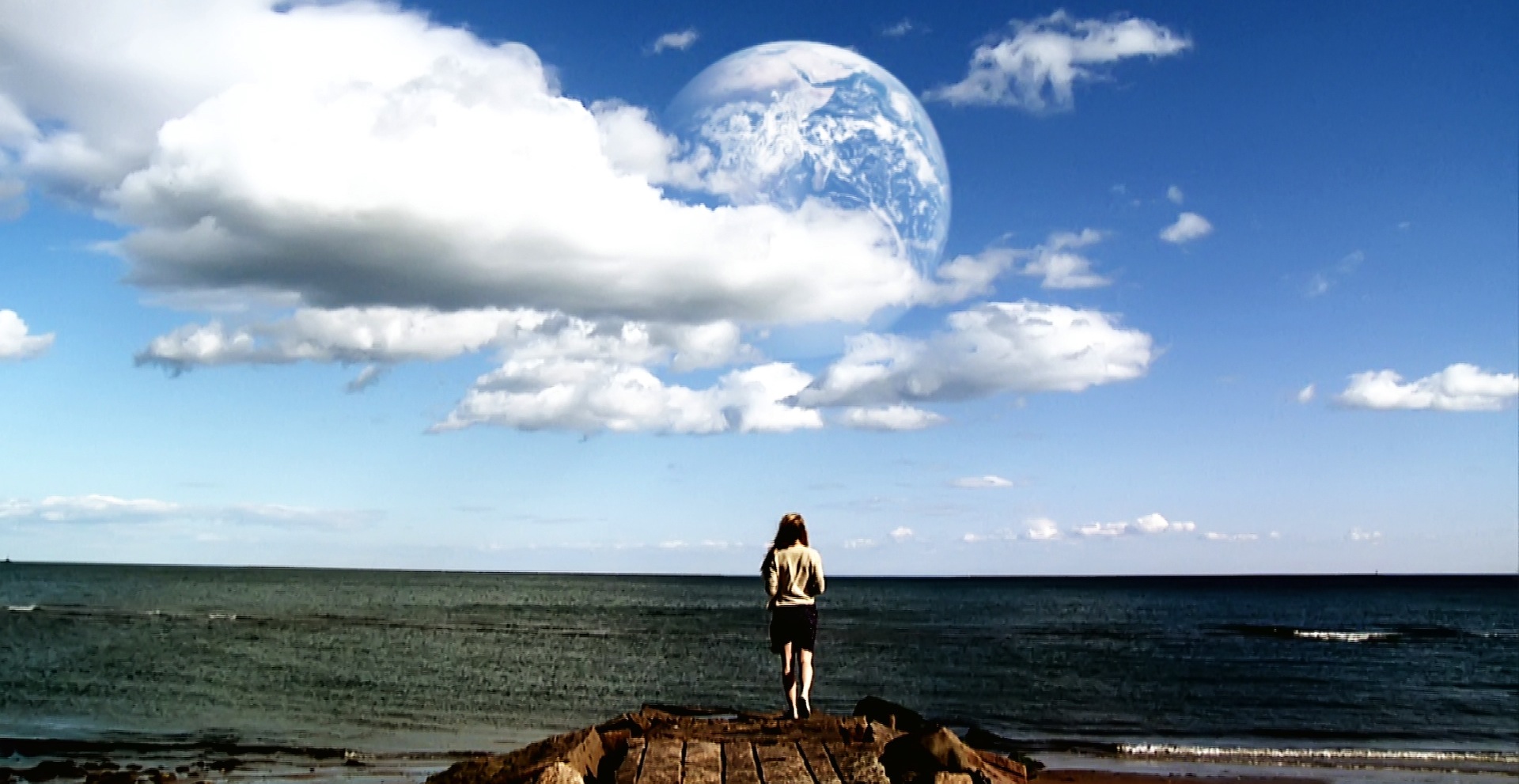
MPAA Rating: PG-13 | Rating: ★★★★
Release year: 2011
Genre: Drama, Sci-Fi Director: Cahill
She wanders through the wreckage, revealing that the young family in the car has lost two of its members–a mother and a child. Only the father remains alive, stable in a coma. Instead of heading off to the world of brilliant minds and physics equations, Rhoda finds herself in a tiny cell for the next four years of her young life. When she is released, she is barely an adult in chronology, yet has lived a lifetime of shame and regret in those four years. Instead of walking the halls of MIT, she mops the halls of a local high school as the janitor, bent on remaining in her stasis of isolation and remorse.
She thinks about that night often. You can tell that she’s a thinker, that the wheels and cogs of her mind are turning their cognitive gears and dredging up painful memories and what ifs. She wonders about the father, John (William Mapother), after a chance encounter on the anniversary of the accident. She looks him up, heads to his house, tries to build up the nerve to ask forgiveness for the unforgivable. But when he opens the door, her nerve fails her. She fumbles out a story about a cleaning service offering a free trial. He buys it, either because he’s too tired to care, or because he just really needs someone to clean his home. Cluttered and soiled, the decrepit home has deteriorated since that night, along with John’s sense of hope. Rhoda keeps coming back and continues to clean. Maybe it’s a penance for her guilt; maybe it’s an act of service for a broken man; maybe it’s the only thing that keeps these two lonely people from becoming completely isolated in their pain.
Behind all this, there is that new planet. Another Earth is a sci-fi film, but it’s a human drama first; the science-fiction only serves as a backdrop to the unfolding story of two people struggling with their pain. The planet turns out to be a sort of doppelganger to our own Earth, a duplicate with perfect synchronicity to our world. Imagine that there was anotheryou out there. What could we learn from them? What would we say to them? Who would win in a footrace? Rhoda and John both wonder what this all could mean, but while John is paralyzed by the fear of the unknown, Rhoda is too devastated by what she does know. She enters a corporation’s essay contest to win a trip to Earth 2 as the ambassador for our planet. She killed a woman and child on this world; could she have avoided the accident in another life? It is the literal outworking of the “what if?” questions we’ve all asked. What if I had a second chance? What if I had gone a different path? What then? Her sense of adventure and her desire for escape have collided.
Another Earth is a moving contemplation on the isolation of pain and humanity’s search for hope. Brit Marling is extraordinary here, offering a stoic beauty in her performance that elicits a a deep empathy for her pain. There are moments that reminded me of Krzysztof Kieslowski’s films, particularly Blue and Red in their meditations on loss and grief, as well as the color-saturation of certain shots. A particularly beautiful scene is depicted above, when Rhoda strolls out to the beach and stares at the second planet, wondering at its possibilities. Maybe the new earth is better than the old one to which we’ve grown accustomed. Maybe there is hope for a better life, a better world, a better reality. Maybe on a distant shore another person stares back towards the horizon with patience, waiting for us to arrive.
Then I saw a new heaven and a new earth, for the first heaven and the first earth had passed away, and the sea was no more. And I saw the holy city, new Jerusalem, coming down out of heaven from God, prepared as a bride adorned for her husband. And I heard a loud voice from the throne saying, “Behold, the dwelling place of God is with man. He will dwell with them, and they will be his people, and God himself will be with them as their God. He will wipe away every tear from their eyes, and death shall be no more, neither shall there be mourning, nor crying, nor pain anymore, for the former things have passed away.”
And he who was seated on the throne said, “Behold, I am making all things new.”
IMDB Listing: http://www.imdb.com/title/tt1549572/